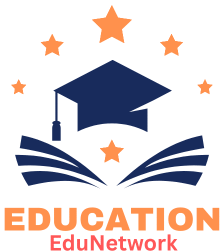Looking for a career in education that combines impact, professional fulfillment, and opportunities for advancement? Consider becoming an educational consultant. Important work done by educational consultants includes creating new approaches to education, improving existing school systems, advising educational institutions, and helping both students and teachers achieve their goals.
This article will go over the many responsibilities of educational consultants, the skills and experience needed for the work, the career outlook, and the steps to enter into this dynamic field.
What Are the Roles of Educational Consultants?
Collaborating with schools, educational institutions, government agencies, or commercial organizations, educational consultants provide expert advice on curriculum development, instructional techniques, educational technology, policy implementation, and student success programs. These roles may take several shapes and sizes, but some examples include advising elementary and secondary schools on best practices, helping colleges and universities become accredited, or developing whole new courses.
Educational consultants provide specialized knowledge and advice to improve educational systems. Curriculum development, teacher education, career guidance, special education, and the incorporation of technology are just a few areas where they might focus their efforts.
Educational Consultant Job Categories
Educational consulting is a broad field with numerous potential opportunities. Positions often held by educational consultants often fall under the following:
-
Consultant for K-12 education: provides guidance to primary and secondary schools on curriculum, assessment, and teaching methods.
-
Higher education consultant: advises schools on matters such as program development, accreditation, and enrollment strategies.
-
Special education consultant: primary role is to advocate for students with disabilities and to ensure compliance with special education requirements.
-
Consultant for college and career readiness: helps students with developing their skills, exploring potential career pathways, and preparing for college applications.
-
Consultant in educational technology: helps schools and other organizations make good use of digital resources.
-
Policy and administration consultants: school districts and other education authorities might seek advice from consultants specializing in policy and administration while developing new policies and implementing existing ones.
Essential Responsibilities of an Educational Consultant
While specific duties may vary by job and employer, a typical workday may include:
-
Assessing current educational programs and offering recommendations for improvement.
-
Making lesson plans and classroom materials.
-
Providing training and professional development for workers and teachers.
-
Analysing the educational resources and hardware.
-
Providing guidance on the evaluation and assessment of pupils.
-
Providing support to schools as they meet the criteria for accreditation.
-
Proposing recommendations on educational policy and regulations.
-
Collaborating with many parties involved, including parents, students, educators, and administrators.
-
Putting up reports and updating decision-makers on outcomes.
Skills and Qualifications Necessary for Employment as Educational Consultants
Educational consultant positions often call for candidates with a combination of academic credentials, work experience, and strong interpersonal abilities. Some necessary conditions are as follows:
-
Background in Education: The majority of positions frequently call for a bachelor’s degree in psychology, educational leadership, education, or a related field. A large number of consultants have advanced degrees, such as PhDs or MSs.
-
Prior experience: Experience in the classroom or in school management is an asset.
-
Expertise in a Particular Area: Proficient understanding of educational technology, special education, assessment, curriculum design, or special education may be crucial.
-
Analytical Skills: The ability to assess the effectiveness of programs, examine data, and provide recommendations supported by evidence.
-
Communication Skills: Seminar facilitators and concept communicators need strong verbal and writing communication skills.
-
Interpersonal Skills: Having strong interpersonal skills means being able to interact with different types of people.
-
Project Management: Capable of coordinating several projects and meeting strict deadlines.
Strategies for Achieving Employment as Educational Consultants
Consider these strategies if you are interested in a career as an educational consultant:
-
Connect with other educators and consultants, attend conferences, and become a member of professional organizations to expand your network.
-
Education-specific job boards: Check out LinkedIn, HigherEdJobs, and Education Week, among others.
-
Firms that specialize in educational consulting: Send your resume to these establishments.
-
Professional Development Opportunities: Many consultants get their start as freelancers working for school systems or individual schools.
-
Investigate potential partnerships with government and charity organizations that focus on education.
Educational Consultant Salary and Job Outlook
There is a growing need for educational consultants as schools and other educational institutions work to improve learning outcomes while also adapting to new regulations and technologies. According to the U.S. Bureau of Labor Statistics, education consultants and experts should expect stable job growth over the next decade.
Wages may range from the following, with considerable variation depending on experience, location, and employer:
-
Beginning educational consultants may expect to earn a salary of $50,000 to $70,000 per year.
-
Depending on their level of expertise and education, expert consultants might earn anywhere from $80,000 to $120,000 per year or more.
-
The amount of money that independent consultants make might vary greatly depending on their customers and the kind of contract job they take on.
Work as an Educational Consultant and Enjoy These Benefits
A profession in educational consulting offers several benefits:
-
Effect: Help shape policies and practices that improve student achievement in the classroom.
-
Flexibility: Collaborate with a wide variety of clients, from public organizations to private businesses and even school districts.
-
Work-life Balance: The ability to set one’s own hours and work from anywhere is a major perk for consultants.
-
Professional Growth: Advancement in one’s career as a teacher requires constant learning about current and emerging trends and difficulties in the field.
-
Collaboration: Help dedicated administrators and teachers who are eager to make a difference in the classroom.
Potential Difficulties in the Field of Educational Consulting
Although these occupations are rewarding, they are not without their challenges:
-
Alterations to Policies: Keeping up with the frequent changes to laws and educational requirements.
-
Balancing Stakeholder Interests: To strike a balance between the interests of different stakeholders, it is necessary to manage the competing priorities of teachers, principals, and parents.
-
Travel: Some occupations need you to travel to client sites, which may be rather exhausting.
-
Contract Work: Freelancers’ incomes could be more erratic.
Guidelines for Achieving Academic Consulting Success
-
Keep Yourself Updated: Never stop learning about new discoveries, developments, and educational best practices.
-
Build a Strong Network: Connect with lawmakers, school officials, and teachers to build a strong network.
-
Develop Communication Skills: The ability to communicate clearly and persuasively is crucial for effecting change, therefore hone your communication skills.
-
Gain Experience: Volunteering, internships, or part-time teaching jobs are great ways to build your resume.
-
Research Credentials: Educational consultants may get credentials from a select few agencies or groups.
Conclusion
Educational consulting is an interesting career route for those who are passionate about making a difference in the world of education. Possibilities to collaborate with diverse stakeholders, put knowledge to use, and influence the future of education are all presented by these roles. Understanding the nature of the positions and training properly will help you thrive in this rewarding sector, whether your career objective is to work with educational technology enterprises, K-12 schools, or higher education institutions.
Before you start applying for positions as an educational consultant, make sure you’re well-versed in the subject, have relevant work experience, and have a strong professional network. A fulfilling career that shapes the future of education is within your reach if you put in the time and effort to prepare.
